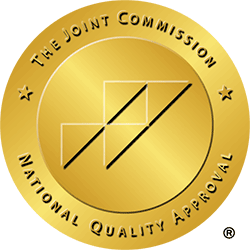
Drinking cultures vary significantly around the world, and alcohol consumption is often deeply intertwined with social practices, traditions, and celebrations. While drinking is common in many societies, not all drinking cultures are the same. Some promote moderation and healthy behaviors, while others can encourage excessive drinking that leads to addiction or other negative consequences. Understanding the difference between healthy and potentially harmful drinking cultures is key to making informed decisions about alcohol use. At BriteLife Recovery, we explore these cultural norms and their impact on individual behavior.
1. Moderation-Focused Drinking Cultures
Some cultures promote moderation in alcohol consumption, often using alcohol as a complement to social activities or meals rather than as the main focus. In these cultures, alcohol is typically consumed in smaller amounts, and heavy drinking is often discouraged. Countries like Italy and France are often cited as examples of cultures where alcohol is integrated into daily life in a way that encourages moderation.
In these societies, wine or beer may accompany meals, and the drinking experience is typically about enjoyment and social connection rather than intoxication. Because drinking is often paired with food and conversation, individuals may feel less pressure to drink excessively. These cultures tend to have lower rates of alcohol-related problems like binge drinking and addiction.
Healthy Aspects:
- Alcohol is viewed as an accompaniment to food or social activities.
- Moderate consumption is encouraged, with an emphasis on enjoyment, not intoxication.
- Lower instances of binge drinking and alcohol-related harm.
2. Social Drinking Cultures
In many Western societies, such as the United States and the United Kingdom, alcohol is often consumed in social settings, such as parties, bars, or gatherings. While moderate social drinking is common, these cultures also have higher rates of binge drinking, particularly among young adults and college students. Drinking to excess is sometimes seen as a rite of passage or a way to let loose.
In these cultures, there can be an expectation to drink at social events, and heavy drinking may be normalized or even encouraged in certain circles. This can lead to unhealthy drinking habits, especially for individuals who struggle to control their alcohol consumption.
Potential Risks:
- Binge drinking is more socially accepted, particularly in certain environments.
- Heavy drinking may be normalized, leading to increased risk of addiction.
- Drinking to the point of intoxication can be common, leading to physical and mental health risks.
3. Ritualized Drinking Cultures
Some cultures have rituals and ceremonies that involve alcohol as a central component. For example, in Japan, it’s common to partake in after-work drinking with colleagues, where alcohol is a way to bond and break down social barriers. While these rituals are culturally significant, they can sometimes encourage overconsumption, as there is often social pressure to drink when others are drinking.
Similarly, in Russia, vodka is often consumed in large quantities during social and family gatherings. While this can foster community bonding, it can also promote excessive drinking as a normalized behavior.
Potential Risks:
- Social pressure to drink can lead to overconsumption, even among those who typically wouldn’t drink heavily.
- Regular ritualized drinking may normalize heavy consumption in social or family settings.
4. Binge Drinking Cultures
In some cultures, heavy and frequent binge drinking is seen as normal, particularly among certain age groups. This is often seen in environments like college campuses or among younger adults in nightlife settings. Binge drinking can lead to serious health problems, including alcohol poisoning, long-term liver damage, and a higher risk of developing alcohol use disorder (AUD).
Unhealthy Aspects:
- Drinking large amounts of alcohol in a short period, often to the point of blacking out.
- Higher risk of accidents, injuries, and long-term health issues.
- Increased likelihood of developing dependency or addiction.
Not all drinking cultures are the same, and some can encourage healthier relationships with alcohol than others. Cultures that promote moderation and drinking as a social complement tend to have lower rates of alcohol-related issues, while those that normalize heavy or binge drinking present higher risks of addiction and health problems. Understanding these differences can help individuals make more informed decisions about their own drinking habits.

Being an ally to someone in recovery means offering support, understanding, and patience as they work toward sobriety. By educating yourself, providing non-judgmental support, encouraging healthy habits, and respecting their boundaries, you can play a crucial role in helping your loved one succeed in their recovery journey. At BriteLife Recovery, we know that having a strong support system can make all the difference, and we are here to provide the guidance and care your loved one needs.
If you or a loved one is struggling with unhealthy drinking patterns, BriteLife Recovery offers comprehensive treatment programs to help individuals regain control over their lives. Reach out to us today for more information.
SPEAK WITH AN ADDICTION SPECIALIST


